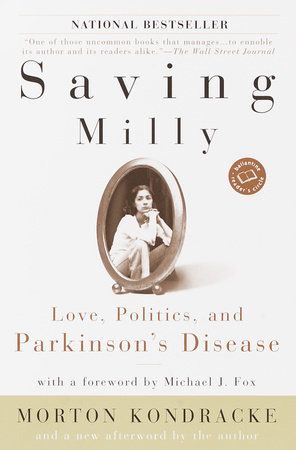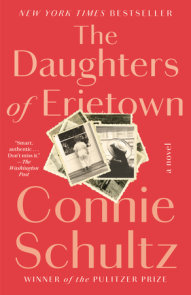READERS GUIDE
Questions and Topics for Discussion
1. How do you personally reconcile the existence of evil in
the world with the idea of an all-powerful, all-knowing,
and loving God? Why do you think bad things happen to
good people?
2. How would you react if you were diagnosed with a
chronic, incurable illness, or if this happened to a person
you love? Would your reaction be more like Mort’s or
Milly’s?
3. The journalist Michael Kinsley, announcing in Time magazine
that he has Parkinson’s, defended the idea of "denial"–
keeping the disease secret for as long as possible and
trying to get on with one’s life. He disparaged "aggressive
victimhood" or "confrontation"–in other words, going
public and demanding action. What would your choice be?
4. Why do you suppose that women are so much more likely
to "stick it out" with a chronically ill spouse than men are?
5. Should government–federal, state, or local–provide assistance
(whether in money or nursing services) to spouses
caring for a chronically ill mate?
6. Does it strike you as unethical for a journalist to lobby the
White House or Congress for what he or she believes is a
good cause?
7. How did you react to the fact that wide disparities–by
hundreds, sometimes even thousands of dollars per victim–
exist in federal research funding for various diseases? How
do you think federal dollars should be allocated?
8. Should allocations of disease research money be "political"?
Can it be otherwise as long as Congress appropriates the
money for medical research?
9. Would you favor creating a dependable, dedicated money
source for medical research, such as a 1 percent or 2 percent
tax on health insurance premiums or a tax increase on
such illness-producing products as tobacco, alcohol, or
high-fat foods?
10. Do you believe that human embryos "leftover" at fertility
clinics and destined to be discarded should be used to extract
stem cells for medical research? If so, should the federal
government fund this research?
11. Should the government outlaw the cloning of human embryos
for both reproductive and research purposes, as
President Bush advocates?
12. Should terminally ill people have the right to end their
own lives? If so, under what circumstances? In hospices,
where they can be kept comfortable as they refuse food
and water? Or by assisted suicide, in which a doctor actually
administers lethal drugs?
2. How would you react if you were diagnosed with a
chronic, incurable illness, or if this happened to a person
you love? Would your reaction be more like Mort’s or
Milly’s?
3. The journalist Michael Kinsley, announcing in Time magazine
that he has Parkinson’s, defended the idea of "denial"–
keeping the disease secret for as long as possible and
trying to get on with one’s life. He disparaged "aggressive
victimhood" or "confrontation"–in other words, going
public and demanding action. What would your choice be?
4. Why do you suppose that women are so much more likely
to "stick it out" with a chronically ill spouse than men are?
5. Should government–federal, state, or local–provide assistance
(whether in money or nursing services) to spouses
caring for a chronically ill mate?
6. Does it strike you as unethical for a journalist to lobby the
White House or Congress for what he or she believes is a
good cause?
7. How did you react to the fact that wide disparities–by
hundreds, sometimes even thousands of dollars per victim–
exist in federal research funding for various diseases? How
do you think federal dollars should be allocated?
8. Should allocations of disease research money be "political"?
Can it be otherwise as long as Congress appropriates the
money for medical research?
9. Would you favor creating a dependable, dedicated money
source for medical research, such as a 1 percent or 2 percent
tax on health insurance premiums or a tax increase on
such illness-producing products as tobacco, alcohol, or
high-fat foods?
10. Do you believe that human embryos "leftover" at fertility
clinics and destined to be discarded should be used to extract
stem cells for medical research? If so, should the federal
government fund this research?
11. Should the government outlaw the cloning of human embryos
for both reproductive and research purposes, as
President Bush advocates?
12. Should terminally ill people have the right to end their
own lives? If so, under what circumstances? In hospices,
where they can be kept comfortable as they refuse food
and water? Or by assisted suicide, in which a doctor actually
administers lethal drugs?





















